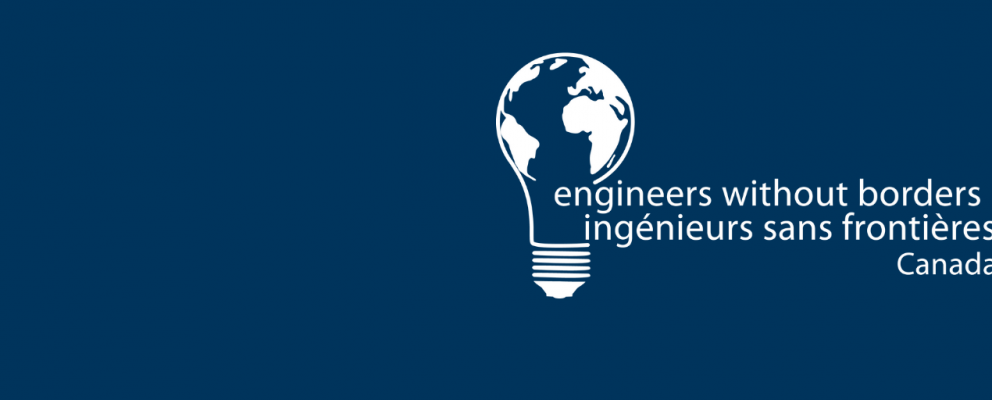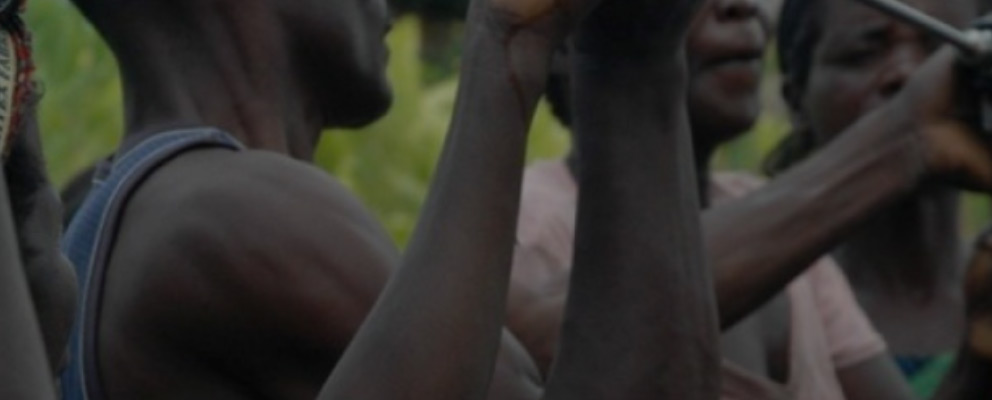
EWB’s journey to safeguarding, diversity, inclusion and gender equality.
EWB seeks to achieve a vision of a more equitable society, inherent to which is the enjoyment of human rights and fundamental freedoms by all persons, regardless of gender identity, sexual orientation, race, class, ethnicity, disability, age or other status.
Through our ethos of questioning, learning and innovating, we courageously commit to invest in capacities and competencies to ensure our organisation embodies and acts with integrity in alignment with our vision for the world.
EWB believes gender discrimination is a root cause of global poverty and economic inequality. We believe that the achievement of gender equality is integral to our mission of attaining systemic change and creating a more just society. Across the world women, girls, and gender non-conforming persons are discriminated against at a systemic and individual level and thereby encounter greater barriers to leadership, entrepreneurship and citizenship. Therefore, EWB is committed to promoting gender equality in what we do, and how we do it.
We realize that achieving integrity with gender equality principles is a journey not a destination. That is why it is important for EWB to journal along that path. To foster self reflection, to acknowledge progress when it is made and to be transparent with the road ahead.
In the aid sector, which EWB is a part of, the journey toward gender equality and the safeguarding of people is of utmost importance. It is a journey that all organisations are on, and it must be progressed with steadfast commitment and urgency.
This post is our journal.
Where is EWB at today?
EWB has zero tolerance for harassment. Our leadership is unequivocally committed to upholding and continuously strengthening the policies and mechanisms that prevent and address abuse and harassment. The empowerment of women in the workplace and in economies everywhere in the world is an issue that is central to EWB’s raison d’etre.
We track diversity metrics across all levels of our organisation. We are proud of the gender balance at all levels of the organisation, with a 50/50 gender balance on the Board of Directors with the Board Chair identifying as a woman; we also have a greater than 50/50 gender balance on the Management Team with 3 of the 5 members identifying as women. Nonetheless, we recognise more efforts need to be made to ensure there is representation from the communities we work in, at all levels of the organisation.
We have mechanisms in place to ensure the organisation is tracking incidents, these are reported and discussed on a quarterly basis with the Board of Directors to ensure the organisation as a whole is continually learning and growing. There are institutional structures throughout the organisation that are responsible for ensuring the safety and wellbeing of our staff and community including the Governance Committee and Health, Safety and Wellness Committee of the Board and the Joint Health and Safety Committee on the EWB Team.
These Committees are responsible for maintaining and applying a full suite of preventative measures, policies and response mechanisms to ensure safeguarding across EWB. Some of these mechanisms include:
- Directors, staff and volunteers onboarding and training processes
- Violence and harassment policy
- Sexual misconduct and sexual assault policy
- Cyberbullying policy
- Child and youth protection policy
- Whistleblower policy
- Publicly accessible Complaints policy
- Office of the ombudsperson (Provided by a third party independent HR firm)
What has the journey been thus far?
Between 2015 and 2020 EWB undertook major steps in improving the centrality of gender equality within the organisation:
- Between 2014 and 2020 we gradually built a Board with a majority of women. We reached gender parity on the Board in 2017.
- In 2015 we selected an office space that is fully accessible.
- In 2016-17 we undertook a full organisational Gender Audit in partnership with Value For Women – a third party firm specialised in promoting gender equality in the workplace and across programs. We created and implemented a gender roadmap to bring gender equality into all our internal processes and within the design of our programs.
- For example, EWB practices blind CV reviews to remove unconscious bias when selecting our international volunteers. Our volunteers are deployed to support social enterprises who are vetted through a gender lens.
- Between 2014 and 2020 we built a staff team with over 80% women by focusing on selecting the best candidate for the roles we offer, and by ensuring that our outreach, job descriptions and selection process foster diversity and are gender inclusive.
- Between 2014 and 2020 we built our Management Team; there is currently a 60/40 gender balance on the Management Team, with 3 of the 5 members identifying as women.
- In 2017 we established a Board committee for Health and Safety specifically tasked to improve safeguarding standards across all EWB programs. The committee has been supporting Management’s efforts in this direction for the past four years.
- In 2017 we succeeded in hiring Muthoni Wachira, a successful Kenyan entrepreneur and investor as EWB’s Director of Investments. She remained in the position until 2020. The position is vacant as of October 2020.
- In 2018 we hired a gender specialist to support our execution on the gender equality roadmap created by Value for Women.
- In 2018 we added a gender equality statement into the Mission and Theory of Change.
- In 2018 we introduced a Gender caucus and a Race caucus at key EWB events and put in place a code of conduct at these events to protect participating EWB members.
- In 2018 we created a Memorandum of Understanding (MOU) for all Chapters Presidents to sign as they begin their leadership role at EWB, including a section on “Diversity, Inclusion, and Gender”.
- In 2018 we started dedicating specific attention to our members’ mental health and promoted the benefits of self care by creating training modules and workshop based safe spaces to talk about mental health. We now train our Chapter Presidents each year on the matter. Mental health has been a core part of our training for international volunteers since 2017.
- In 2019 EWB elevated Shivani Patel as EWB’s first ever Chief Operations Officer, essentially co-leading EWB alongside our CEO. We ensured that the seniority of the position was reflected in the informal and formal power structures in the organisation.
- In 2019 we incorporated staff and managers training on all policies related to sexual harassment prevention and response and migrated to a HR management platform to support with the automation of training.
- In 2019 we retained the services of a 24/7 HR advice line to provide expert HR support. This service provider also provides Health & Safety related advice and guidance.
- In 2019 there was an on-site visit from a qualified Health & Safety expert to identify potential risks at the workplace.
- In 2019 we put in place a grievances process, code of conduct and hired the services of a third party Ombudsperson to respond to cases that our policies and processes may have failed to resolve – such that no one at EWB is left without someone to talk to.
- In 2020 we instituted that our entire team, including the Board of Directors, would be trained each year on anti-oppression and anti-racism and committed to track racial diversity data across EWB and discuss it with our Board of Directors.
- Over 5 years of programming, from 2015-2020, 51% of our Chapter members identified as female, with an increase to 56% in the last academic year.
- Over 5 years of programming, from 2015-2020, 54% of our Kumvana Fellows identified as female and 60% of our Long Term Fellows. EWB put measures in place to ensure the programme was accessible for women with family responsibilities. For example, offering childcare during placements or placements that would accommodate for spouse and children.
We are proud of the progress made, but recognizing that there is more work to be done. We are committed to continue on this journey because we believe that the achievement of gender equality is integral to our mission of attaining systemic change and creating a more just society.
